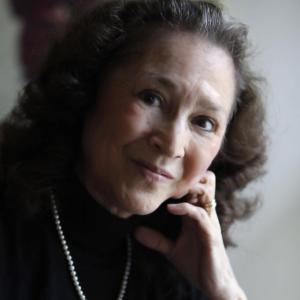This is the fourth installment of our series "Fact-checking around the world," which highlights organizations fighting against misinformation worldwide. You can also read part one, part two or part three.
Fact-checkers are fighting fake news on multiple fronts in Bosnia-Herzegovina, a Balkan country ravaged by war in the 1990s. They operate under the auspices of the NGO “Zasto Ne,” which is supported by the National Endowment for Democracy. The translation: Why not?
The first watchdog initiative, Istinomjer, which means “Truth-O-Meter,” launched in 2010. Its mission is to monitor and evaluate the statements of public officials, political parties in power and other political actors, according to Aida Ajanovic, fact-checking team coordinator and editor for the Sarajevo-based operation.
A lawyer by trade, Ajanovic explained that Istinomjer evaluates statements by public officials for consistency, truthfulness and the fulfillment of promises they make during public appearances. They also evaluate the pre-election promises of political parties in power at local and state level.
Holding politicians’ feet to the fire is no small order in Bosnia-Herzegovina (BiH), an ethnically diverse society rife with corruption in the post-war years.
In May 2016, the Commission on Security and Cooperation in Europe noted during a hearing, “Bosnia’s progress is stymied by official corruption to the detriment of its citizens’ quality of life and the prospects for the country’s integration into Europe. Amid recent press reports on scandals involving various government officials, public perceptions of corruption rank Bosnia and Herzegovina among the worst in the Western Balkans.”
The Istinomjer staff noted that misinformation wasn’t just coming from politicians, but also from the BiH press. That called for greater scrutiny of news outlets and online publications and increased tracking of fake websites.
“Unfortunately, such forms of reporting and fake news [in local media] did not fall under Istinomjer’s methodology,” said Ajanovic. “We could not handle this [kind of fact-checking] in the same way we handled the statement and promises of politicians. The next logical step was to start a separate platform.”
Under the same umbrella as Istinomejer, “Zasto Ne,” Raskrinkavanje was created in 2017 to take a closer look at stories in the local media.
Soon after the launch, Raskrinkavanje debunked two blatant examples of phony stories that tapped into stereotypes. One was a controversial story about a woman who was breastfeeding a 12-year-old child, the other an account of Muslim men receiving payments to embrace radicalism.
Tijana Cvjeticanin, editor of Raskrinkavanje, sees a strong political component in these fakeries. She believes they were meant to affect political discourse.
“[These stories are] basically political smear campaigns that are being peddled through these portals. There’s a growing market of junk science and conspiracy theory,” she said in a post by the Poynter Institute for Media Studies in the wake of the December launch.
The toughest hurdles, said Cvjeticanin, are tracing the ownership of fake news sites and pushing past the negative public opinion of the media.
Including the grant from the National Endowment for Democracy, Raskrinkavanje is also supported by the U.S. Embassy in BiH.
Bosnia’s two main fact-checking operations take the process a step further, analyzing different methods and patterns of how false information is created and distributed in BiH and the Balkan region, including border states Croatia, Serbia, and Montenegro.
“We do additional research into the most prominent narratives that are connected to the misinformation to shed light on the impact,” said Ajanovic.
An example of the kind of falsehoods BiH fact-checkers have debunked: “A wave of anti-vaccination superstitions sweeping Bosnia.”
“In a single piece of online ‘journalism,’ I found an overwhelming amount of misinformation, distortion of facts and flat-out lies presented as evidence supporting the theory that vaccination causes autism” said Cvjeticanin, the author. “In fact, the myths were so thick and numerous, that this sole article required more than one debunking analysis.”
Stories that point out fearmongering and sensationalism are the backbone of the two fact-checking operations.
Public reaction so far has been positive, judging from the number of visits to the websites and comments from followers. The staffs of both organizations make an average of three guest appearances per week on different media outlets.
“Stories in which politicians admit telling lies or apologizing for the unfulfilled promises are rare, but still happen. We also had a couple of situations where actors in our stories tried to challenge our findings, unsuccessfully,” said Ajanovic. “Our staffs are small, but we feel we are making a difference.”
Main image CC-licensed by Unsplash via Mr Cup / Fabien Barral.


